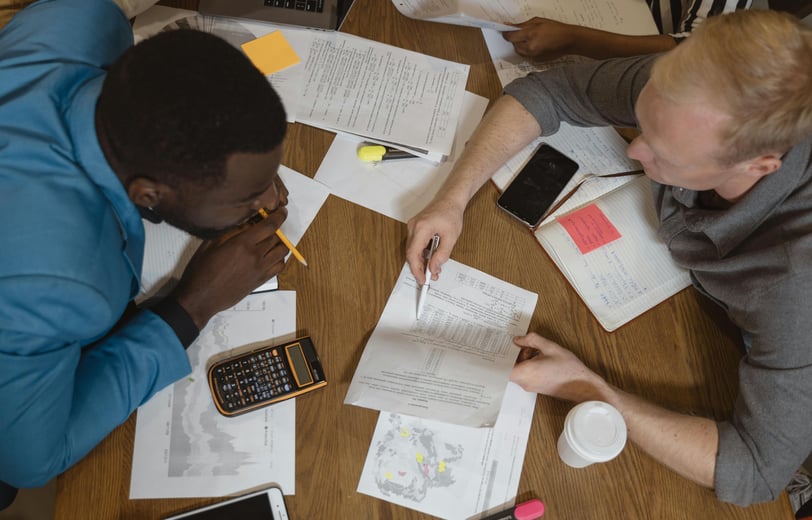Financial Knowledge and Financial Resiliency
Explore innovative research topic ideas focused on financial knowledge and financial resiliency. Enhance your understanding of financial education and its impact on personal and community well-being.
QUANTITATIVE RESEARCH
Realyn Manalo
5/17/20253 min read


In an era marked by economic uncertainty, inflation, and digital transformation, the ability to withstand financial shocks has become a defining trait of individual and household well-being. Financial resiliency—the capacity to recover from and adapt to economic disruptions—relies heavily on foundational financial knowledge. This includes budgeting, planning, saving, and decision-making skills. However, research reveals that financial knowledge alone does not guarantee resilient behavior, especially among vulnerable groups such as women, ethnic minorities, and low-income households. Cultural norms, behavioral habits, and institutional barriers may all prevent individuals from transforming literacy into action. As the global economy becomes more volatile, understanding and strengthening this link is essential for crafting effective financial education, gender-sensitive interventions, and inclusive policy frameworks.
Who Can Use These Topics
This research is ideal for students and professionals pursuing the following courses or strands:
College Programs:
BS in Accountancy
BS in Financial Management
BS in Economics
BS in Community Development
BS in Social Work
BA in Sociology or Psychology
Senior High School Strands:
Humanities and Social Sciences (HUMSS)
Accountancy, Business, and Management (ABM)
General Academic Strand (GAS)
Why This Topic Needs Research
Despite increasing attention, major gaps remain in linking financial knowledge to actual resilience outcomes:
Behavioral and cultural barriers among women: While women possess basic financial knowledge, many struggle to apply it consistently due to cultural roles, psychological constraints, or lack of confidence (Jimenez et al., 2024).
Ethnic and racial inequality in outcomes: Financial literacy improves across groups, but its impact is weaker among Black and Hispanic communities—suggesting structural barriers dilute its benefits (Clark et al., 2025).
Lack of real-world SME validation: Financial resilience models for small enterprises exist, but most remain untested in volatile environments such as politically unstable or resource-scarce regions (Crespo et al., 2025).
Missing mediators in household-level models: Studies show that planning and literacy only work when household behaviors are aligned, but few have explored other mediators like decision-making dynamics or emotional stress (Setyorini et al., 2021).
No long-term, inclusive literacy programs: Current workshops boost knowledge temporarily, but research is lacking on how to design enduring, gender-responsive education models for the economically vulnerable (Wiranatakusuma et al., 2024).
Insufficient behavioral financial data: Resilience frameworks often exclude the role of knowledge and decision-making due to data limitations, resulting in an incomplete understanding of low-income resilience drivers (Salignac et al., 2022).
Lack of cross-sectoral digital strategies: Agile methods show promise, but their effectiveness across industries and in closing generational financial gaps remains underexplored (Malatyinszki et al., 2025).
Feasibility & Challenges by Target Group
Get Your Free Thesis Title
Finding a well-structured quantitative research topic can be challenging, but I am here to assist you.
✔ Expertly Curated Topics – Not AI-generated, but carefully developed based on existing academic studies and research trends.
✔ Comprehensive Research Support – Includes an existed and updated research gaps, explanation of variables as well as SDG relevance.
✔ Personalized for Your Field – Get a thesis title tailored to your academic requirements and research interests.
Prefer video content? Subscribe to my YouTube Channel for expert insights on research topics, methodologies, and academic writing strategies.
References
Clark, R. L., Lusardi, A., & Mitchell, O. S. (2025). Does being financially resilient lead to better economic outcomes?. Journal of Financial Literacy and Wellbeing, 1-18.
Crespo, J. D. O., Domínguez, J. M. F., & Guzmán, D. M. C. (2025). Systematic Literature Review on Organizational and Financial Resilience. IEEE Access.
Jimenez, R. S., Ocampo, C. L. L. G., Sampang, P. I. A., Bondoc, N. V., & Jammang, S. L. (2024) Financial Knowledge of Non-Working Housewives: A Basis for Financial Resiliency of the Brgy. Mangalit Residents in Mabalacat City.
Malatyinszki, S., Horváth, G., & Kálmán, B. G. (2025). Navigating Financial Awareness Across Generational Shifts: Integrating Agile Management for Future Success. PressAcademia Procedia, 20(1), 5-9.
Salignac, F., Hanoteau, J., & Ramia, I. (2022). Financial resilience: a way forward towards economic development in developing countries. Social Indicators Research, 1-33.
Setyorini, N., Indiworo, R. H. E., & Sutrisno, S. (2021). The role financial literacy and financial planning to increase financial resilience: Household behaviour as mediating variable. Media Ekonomi dan manajemen, 36(2), 243-255.
Wiranatakusuma, D. B., Abing, M. J. J., Capulong, C. M., Laygan, R. M., Aprizal, A., Mangca, F. T., ... & Kamil, M. (2024). Assessing the Effectiveness of Financial Literacy Programs in Promoting Financial Resilience among Low-Income Populations. In Proceeding International Conference of Technology on Community and Environmental Development (Vol. 2, No. 1).
